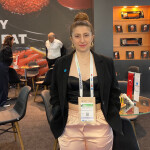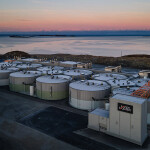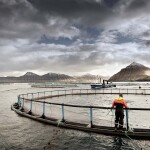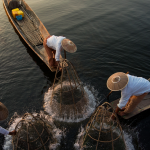A reduced harvest and lower market prices led Faroese Atlantic salmon producer Bakkafrost Group to deliver total operating earnings before interest and taxes (EBIT) of DKK 268.2 million (USD 42.8 million, EUR 36 million) in the first quarter of 2018, down from the DKK 335.5 million (USD 53.5 million, EUR 45 million) posted for the corresponding period of last year.
The company’s salmon harvest fell seven percent year-on-year to 12,200 metric tons (MT) gutted weight. Consequently, its farming segment achieved an operational EBIT of DKK 228.4 million (USD 36.4 million, EUR 30.7 million) for Q1 2018, a decline from DKK 373.2 million (USD 59.5 million, EUR 50.1 million) a year previously – which corresponded to NOK 24.15 (USD 3.85, EUR 3.24) per kilogram.
Bakkafrost’s value-added products (VAP) segment made an operational EBIT loss of DKK 11.6 million (USD 1.8 million, EUR 1.6 million) in the last quarter, which represented an improvement on its loss of DKK 53 million (USD 8.5 million, EUR 7.1 million) in Q1 2017.
The performance of its FOF segment (fishmeal, oil and feed) also improved, with operational earnings before interest, taxes, depreciation and amortization (EBITDA) of DKK 86 million (USD 13.7 million, EUR 11.5 million), up from DKK 45.1 million (USD 7.2 million, EUR 6.1 million) in Q1 2017.
“In the previous quarter, Bakkafrost had very good performance in all three segments. In comparison, Bakkafrost harvested fish from farming sites with weaker performance in the first-quarter of 2018, affecting the production costs negatively in the quarter. On the other hand, the salmon prices have been strong, and we have seen a sharp increase of the salmon price during a relatively short period,” Bakkafrost CEO Regin Jacobsen said.
Meanwhile, the company’s Havsbrún fish feed facility “had good raw material sourcing again and had a strong performance,” he said.
Bakkafrost anticipates harvesting 51,000 MT of gutted weight salmon in 2018. It also expects to release 13.9 million smolts, compared with 9.9 million smolts in 2017 and 11.7 million smolts in 2016.
The company also confirmed that its new salmon meal and salmon oil plant should start operation in Q2 2018 with full production coming in the second-half of 2018. This operation will increase the value of offcuts from salmon harvested and processed in the new harvest/VAP factory at Glyvrar, it said.






